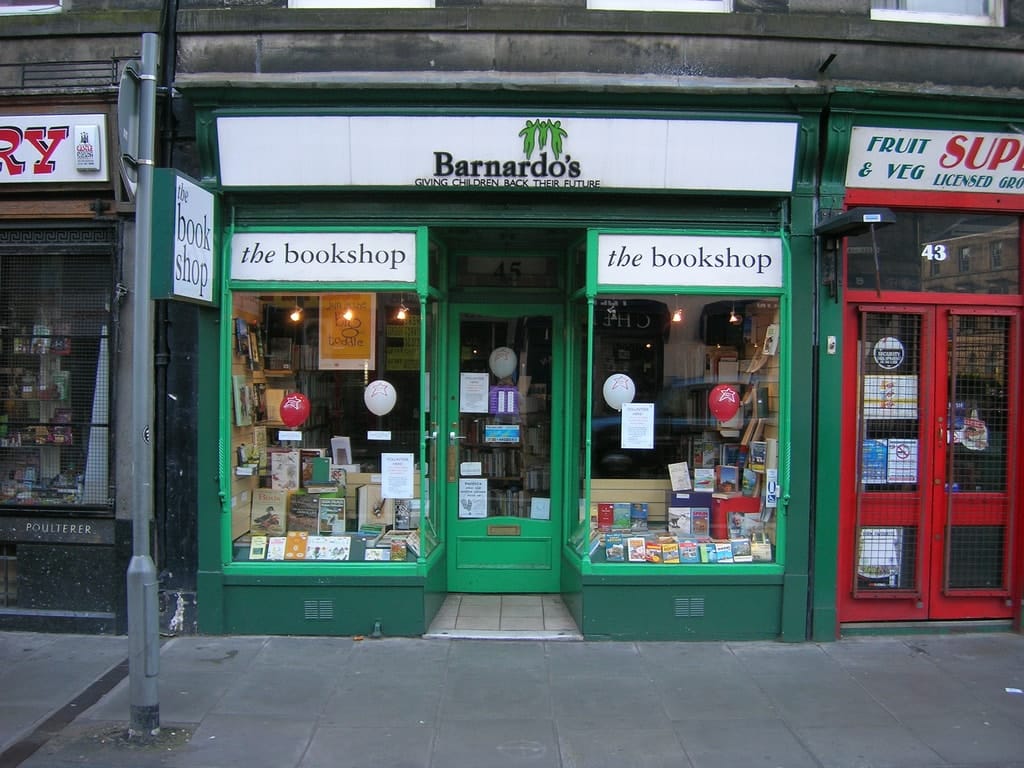Independent Booksellers to Join Forces to Compete with Chains, and Other Ideas That Won’t Work

Ever devoted to clinging to the past, the Guardian brings us news about a new bookstore cooperative that will not be launching soon in the UK:
More than 100 independent bookshops around the UK are attempting to join forces, in order to compete with powerful chains such as Waterstones and WH Smith and negotiate better prices and exclusive editions of bestselling titles.
Last Christmas, there was unease among many independent shops when they missed out on an exclusive edition of Philip Pullman’s La Belle Sauvage, with all 5,000 copies of the hardback book going to Waterstones. Indie booksellers felt they had missed out on offering their customers the signed, special edition of the long-awaited novel; writing anonymously at the Secret Bookseller blog, one retailer laid out their belief that the deal showed “how the publishing industry tends to operate in 2017, with everything fixed in favour of Waterstones”.
The idea of independent booksellers banding together to look for exclusive deals on a handful of major titles each year was proposed by Simon Key of Wood Green, London’s Big Green Bookshop earlier this month. On his shop’s website, Key set out the idea of indie stores agreeing to stock and promote a few big releases each year as a united force, in the way chain stores do. “If this happened, I suspect that there’d be quite a few publishers and authors who’d take notice, and want to support this,” he wrote.
On Monday, Key said that there were more than 100 stores keen to sign up to the concept and that the catalyst for the project was the release of La Belle Sauvage. “There was a lot of anger in that [Secret Bookseller] blog that focused on Philip Pullman and Waterstones and publishers. I didn’t agree with that bit, but the blog also pointed out how Waterstones has 290-odd shops, so it is a lot easier for publishers to deal with … When they’re negotiating with 290 independents, they have to go to each one individually. I thought that there was power in numbers, so if a bunch of indies did get together to negotiate with a publisher, that would be easier.”
Key acknowledged past efforts to set up buyer consortiums to negotiate bigger discounts on titles, “but I think the thing about independent bookshops is that they are individual: we don’t all want the same books. What makes them brilliant is that they are so different.”
The problem with this idea is not that it can’t be done but that there are better ways to use the required resources.
For starters, this distributor will need warehouse(s) and product management software, both of which can be bought, built, or leased easily.
That is the easy part; finding someone to run the coop, and raising the necessary capital, will be a lot harder. They’ll probably end up going with an ex-Amazon exec,and turning to venture capitalists to raise the funds.
And that is a problem, because the first thing a VC will ask the ex-Amazon exec is why this startup is going to sell to bookstores when there is more money in selling direct to the public?
If I can think of that question then so will the VCs, and best of luck with finding an answer.
There’s really no good argument why someone would invest in a distributor rather than in the next Book Depository (which was founded by an ex-Amazon employee). The former might grow into a solid business, but the latter has a chance of being bought out by Amazon.
I know where I would put my money; where do you think the VCs would invest?
image by brewbooks


Comments
Barry Marks January 31, 2018 um 5:29 pm
Coops have been around for a long time and have done very well. If you’re in the USA you probably have a nearby ACE hardware store. They’re a first rate example of this exact thing. They were founded in 1924 by a bunch of hardware stores wanting to combine to get better buying power. Each store is privately owned although many call themselves ACE Hardware.
These are not franchise stores. It’s just the opposite. The stores collectively own ACE Hardware.
Before I got into programming I managed a couple of hardware stores. One was an ACE Hardware store and the other was a Handy Hardware store, a local coop in Houston. It also bought a lot of stuff from ACE hardware.
I’ve read about other coops succeeding in other businesses. I have no idea whether this one will succeed but it’s not a new thing at all.
Barry
Nate Hoffelder January 31, 2018 um 5:33 pm
I did not know Ace was a coop. How about that.
davemich January 31, 2018 um 10:46 pm
https://en.m.wikipedia.org/wiki/IGA_(supermarkets)
Oscar February 1, 2018 um 2:25 pm
You seem focused on the idea of making a "distributor", which isn’t necessary AFAICT. If the goal is to negotiate as a group on prices, they don’t need warehouses and such, they just need a negotiator. The publishers already distribute books to indie bookstores, after all, this just negotiating about the prices and terms.
Nate Hoffelder February 1, 2018 um 2:50 pm
Except the term is volume discounts: order a lot at once and the overhead cost to handle the order drops. If the publishers still have to ship 150 orders to 150 stores then there’s no benefit to the publisher and no reason to negotiate a better deal.